Keyword stuffing refers to 138068
What Is Keyword Stuffing? Let's look at these different types of SEO strategies in detail so you can understand which one's to use to grow your search traffic 1 Onpage SEO Onpage SEO (also known as Onsite SEO) is one of the most common types of SEO used by millions of websites to improve their organic rankings in search enginesKeyword Stuffing What Does Keyword Stuffing Mean?
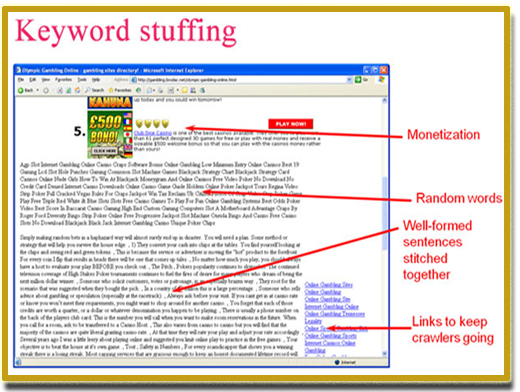
Keyword Stuffing And Irrelevant Keywords
Keyword stuffing refers to
Keyword stuffing refers to- For all you nonSEO nerds out there, keyword stuffing refers to excessively repeating the same word or phrase in Web content (and sometimes hidden in the HTML of the page) in an attempt to rank for that word or phrase in search engines The biggest problem with keyword stuffing is that it makes for poor user experience "Keyword stuffing" refers to the practice of loading a webpage with keywords in an attempt to manipulate a site's ranking in Google's search results Filling pages with keywords results in a negative user experience, and can harm your site's ranking typically, these will be lists or paragraphs of keywords, often randomly repeated




Why It S Essential To Avoid Keyword Stuffing In Modern Seo Ingenium Web
"Keyword stuffing" refers to the practice of loading a webpage with keywords or numbers in an attempt to manipulate a site's ranking in Google search results Often these keywords appear in a listKeyword stuffing generally refers to the excessive and manipulative use of keywords on a page with the aim of improving the page's ranking for that keyword without creating any benefit for the userThis technique worked until around the beginning of 00 It was also common for this tactic to include keywords as "hidden text" on the page keywords in white color were implemented on Google states the following regarding keyword stuffing "Keyword stuffing" refers to the practice of loading a webpage with keywords or numbers in an attempt to manipulate a site's ranking in Google search results Often these keywords appear in a list or group, or out of context (not as natural prose)
Keyword stuffing keywords refers to the practice of adding irrelevant keywords to a web page to manipulate where a page ranks in search engines Google tells SEO not to do this It's counterproductive It's is a signpost of a very lowquality spam site and is something Google clearly recommends you avoid According to Google "Keyword stuffing" refers to the practice of loading a webpage with keywords or numbers in an attempt to manipulate a site's ranking in Google search results Often these keywords appear in a list or group, or out of context (not as natural prose) Here are some of the website you can refer 1Engaging in Keyword Stuffing As the name suggests, keyword stuffing refers to the practice of littering one's SEO content with keywords Although keyword integration plays an important role in the creation of SEO content, many businesses go overboard in this area
It affects readability = Keyword Stuffing affects readability So, without using the keyword, just the "it" able to make you understand what it implies That is what the normal keyword usage and anything higher density than that, what we refer to as "keyword stuffing" How To Avoid Keyword Stuffing Naturally?Keyword stuffing is when a brand fills or "stuffs" a webpage with with the same target term in hopes of ranking higher for that term in search engines While not as popular as it was a few years ago, it's still used by some brands to try to boost their search visibility Types of visible keyword stuffing include "Keyword stuffing" refers to the practice of loading a webpage with keywords or numbers in an attempt to manipulate a site's ranking in Google search results Often these keywords appear in a list or group, or out of context (not as natural prose)
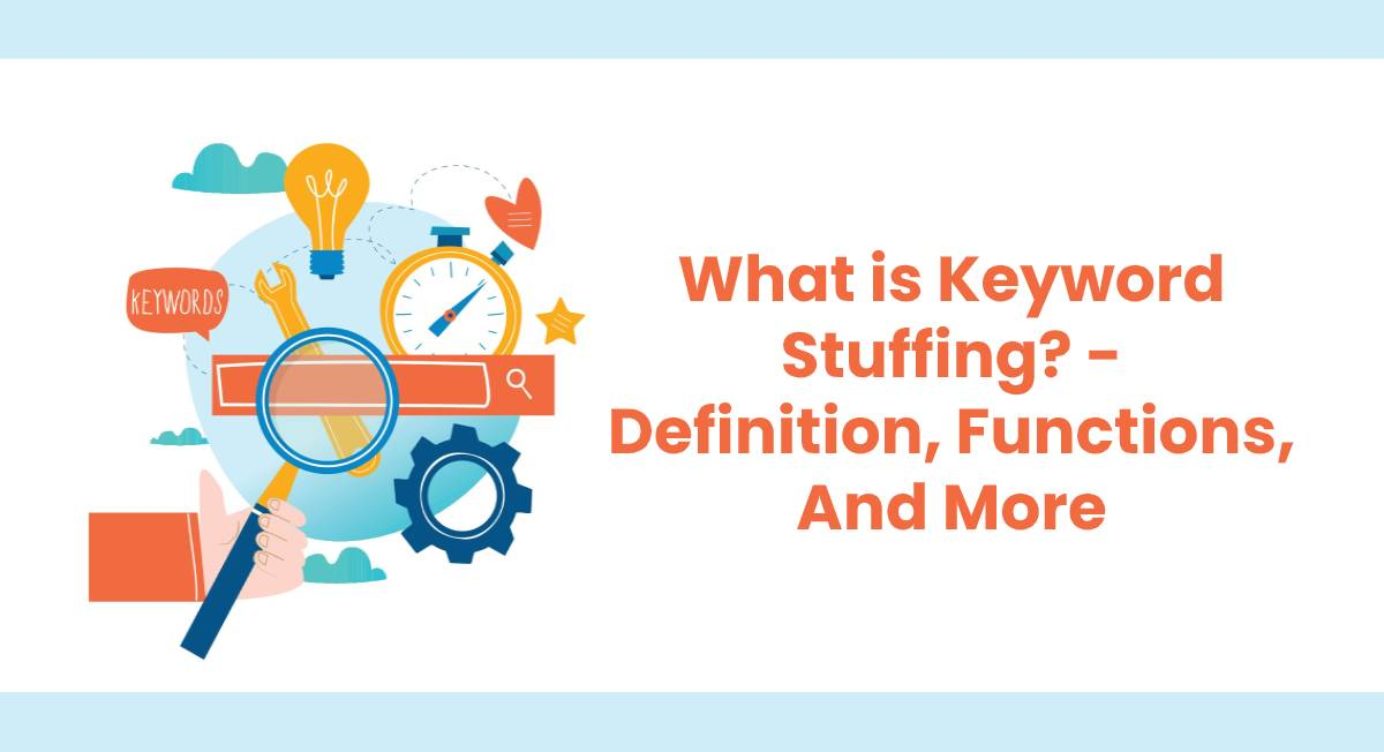



What Is Keyword Stuffing Definition Functions And More Ctr




What Is Keyword Stuffing Why Is Keyword Repetition Wrong Seo Sausage
How To Avoid Keyword Stuffing It is known that 0525% of keyword density (the number of times the keyword appears in the content divided by the number of total words in the content) is considered safe Although there's no exact answer to prevent a Google penalty, it is crucial to keep your keyword density at an appropriate level An example of keyword stuffing would be if they unnecessarily included the phrase 'most affordable toaster' line after line, even jamming in 'most affordable toaster' where the term is out of context or irrelevant to the content topicKeyword stuffing is the practice of overloading a page with keywords, like "dog pet supplies," to manipulate that page's ranking in search results on Google, Bing, and other search engines Even though keyword stuffing doesn't work anymore (it's now seen as a blackhat SEO tactic), many companies accidentally engage in keyword




Keyword Stuffing How To Avoid This Seo Mistake Blog
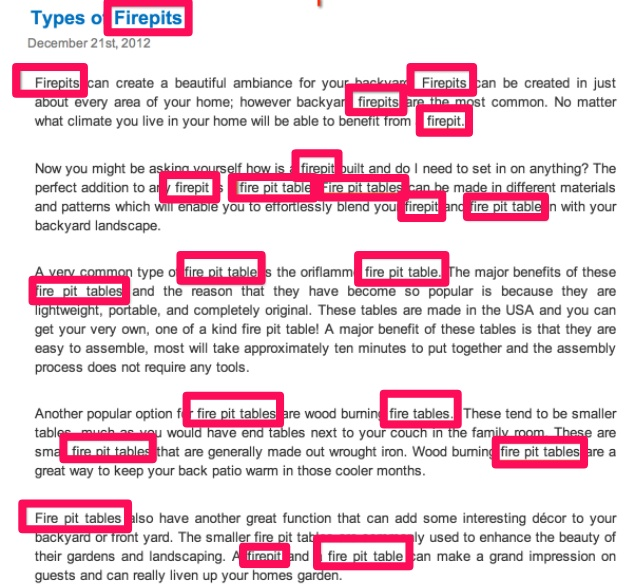



These 12 Website Mistakes Are Sabotaging Your Seo Strategy
Keyword stuffing is a prohibited SEO The acronym SEO refers to "Search Engine Optimization" The aim of this is to improve the organic ranking in thematically relevant search queries As a result, SEO is increasingly seen Read more technique Therefore, you should avoid keyword stuffing Keywords – Friend or Foe Keyword stuffing refers to the practice of loading a webpage with a keyword or keyword phrase as many times as possible in order to manipulate the site's ranking on various search engines Keyword stuffing can be quite obvious to both visitors of a website and the search engine itself, as many times the keywordsKeyword stuffing" refers to the practice of loading a webpage with keywords or numbers in an attempt to manipulate a site's ranking in Google search results Often these keywords appear in a list or group, or out of context (not as natural prose) It seems like Schemaorg's suggestion to include a keyword list could actually have negative SEO
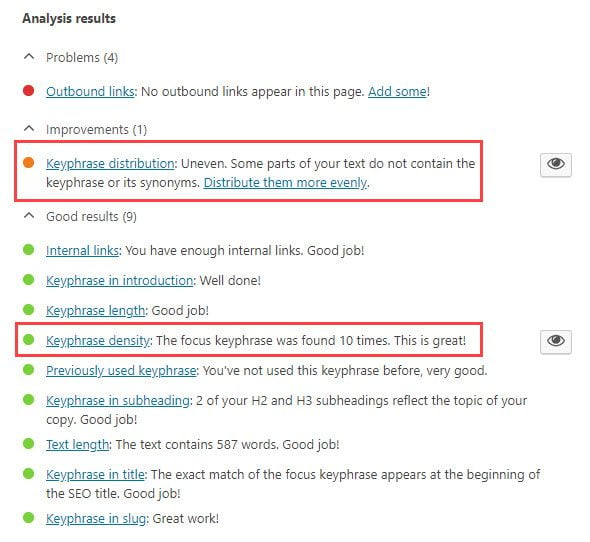



What Is Keyword Stuffing Why It S Bad And How You Can Avoid It Elegant Themes Blog



What Are Zero Click Searches And Why Are They Useful Quora
According to Google, keyword stuffing refers to the excessive filling up of a web page with keywords with the ultimate goal of a higher ranking Earlier, this was a way of increasing a web page's search visibility But search engines got smarter than us and started charging penalties for keyword stuffing"Keyword stuffing" refers to the practice of loading a webpage with keywords or numbers in an attempt to manipulate a site's ranking in Google search results Often these keywords appear in a list or group, or out of context (not as natural prose) Haphazardly tossing keywords into your content is a bad idea If you won't take it from me, take it from the horse's mouth here is Google's official definition of keyword stuffing "'Keyword stuffing' refers to the practice of loading a webpage with keywords or numbers in an attempt to manipulate a site's ranking in Google search results




Forget Black Hat Seo Think White Hat Seo Devrix




What Is Keyword Stuffing Quora
Keyword Stuffing A SEO technique used by Web designers to overload keywords onto a Web page so that search engines will read the page as being relevant in a Web search Because search engines scan Web pages for the words that are entered into the search criteria by the user, the more times a keyword appears on the Web page the more relevancyKeyword stuffing is defined as adding keywords that are irrelevant to the page, or user experience in an attempt to gain additional rank Having the right keyword density, or ratio of keywords to content is one of the most important factors in an effective onpage SEO strategyGoogle has already addressed keyword stuffing with their Panda algorithm change, on April 11th, 11 (and Keyword stuffing refers to inserting keywords or numbers onto a webpage with in order to manipulate a site's ranking in Google search results Often these keywords appear in a list or group, or out of context Basically, not as natural prose Not organic whatsoever Websites who practice keyword stuffing insert as many keywords possible onto a page




The Ultimate Guide To Black Hat Seo Search Engine Digest Blog On Search Engines Search Engine Marketing Sem Ppc Search Engine Optimization Seo




Keyword Stuffing What Is It And 3 Free Tools To Measure It
Google defines keyword stuffing, irrelevant keywords, as "refers to the practice of loading a webpage with keywords or numbers in an attempt to manipulate a site's ranking in Google search results" "Keyword stuffing" refers to the practice of loading a webpage with keywords or numbers in an attempt to manipulate a site's ranking in Google search results Often these keywords appear in a list or group, or out of context (not as natural prose)What is plan B?
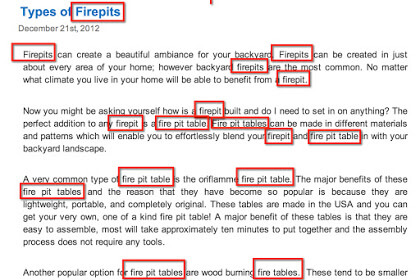



Grey Hat Seo Is It Worth Messing With Google
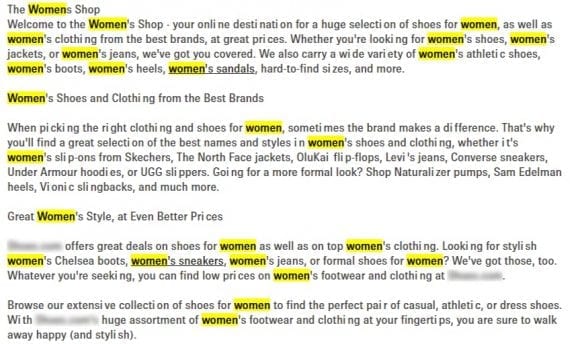



Seo 4 Signs Your Optimized Content Could Be Spam Practical Ecommerce
Keyword stuffing refers to loading a web page with keywords with an aim to manipulate the website's ranking in Google and other search engine's search results Keyword Stuffing Vs Responsible Keyword Optimization There is a huge difference between the two Keyword stuffing is a bad game, no wonders! Keyword stuffing refers to using the same keyword again and again in an unnatural way to get your resume past the ATS People engage in keyword stuffing because some ATS software gives applications a higher ranking when it detects a keyword is used moreThe image below is Google's detailed description of keyword stuffing, which refers to items commonly used by webmasters Common techniques for keyword repetition Excessive use of a particular phrase will cause Google to notice your attempt to gain a place in that keyword On the other hand, this method will show the low quality of the




Keyword Stuffing What Is It Definition Delante Seo Sem Glossary
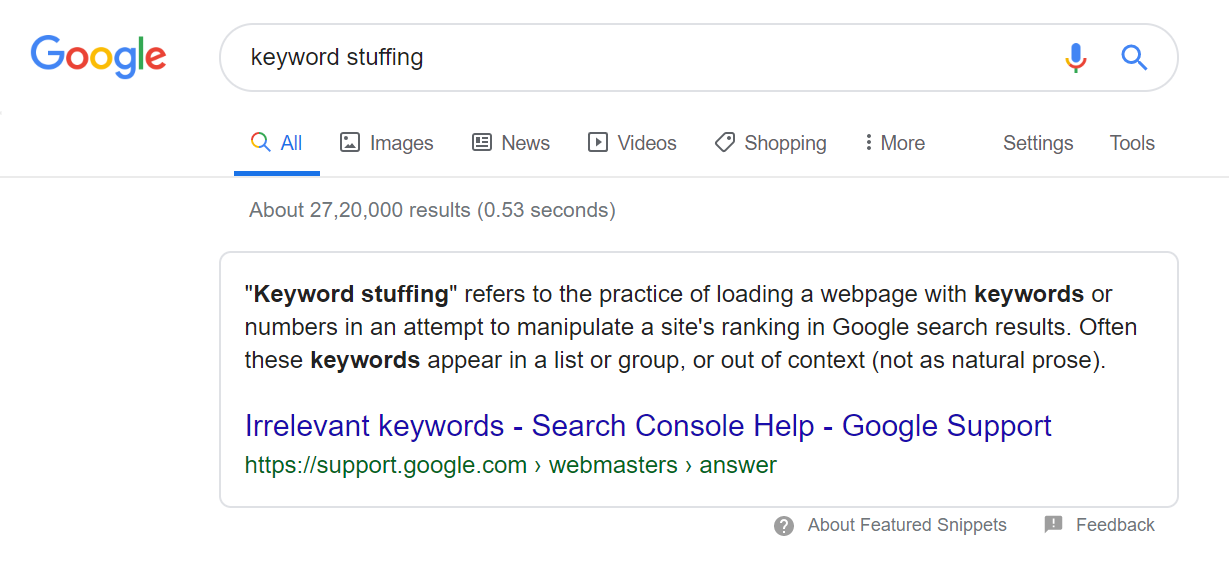



11 Deadly Seo Mistakes To Avoid In Search Engine Watch
Keyword stuffing emerged when search engines were new to the internet Algorithms were much simpler, which means keyword density was much more important on the SERP The more times a keyword occurred on a page, the more likely it would rank well Today, that strategy is called keyword stuffing It's clear that Google keyword stuffing doesn't work today Today, content writers have to optimize their websites with natural writing rather than forced keywords How to Avoid Keyword Stuffing in SEO Following are a few easy ways to avoid keyword stuffing in 21Keyword stuffing generally refers to the excessive and manipulative use of keywords on a page with the aim of improving the page's ranking for that keyword without creating any benefit for the user This technique worked until around the beginning of 00




5 Reasons Why Keyword Stuffing Is Bad For Your Website Fusion Seo




What Is Keyword Stuffing And Why Should You Avoid It Ventura Copywriting
Keyword Stuffing Keyword stuffing refers to the practice of adding superfluous keywords to a web page The words are added for the 'benefit' of search engines and not human visitors The words may or may not be visible to human visitors Keyword stuffing in simple terms is "the process of jamming web page content, webpage meta tags or backlink anchor text with keywords" That is, loading your site or article with keywords to improve the page's ranking in the search results Basically, keyword stuffing is the Lord Voldemort of the SEO worldKeyword Stuffing is an exercise through which professionals try to stuff lots of keywords in the content and make its probability higher to visible over the search engine 10 years ago, keyword stuffing was one of the common practices that SEO professionals do, but nowadays, the strategy according to Google algorithms has been changed



What Is Keywords Stuffing In Seo




8 On Page Optimization Techniques That Google Hates
"Keyword stuffing" refers to the practice of loading a webpage with keywords or numbers in an attempt to manipulate a site's ranking in Google search results Often these keywords appear in a list or group, or out of context (not as natural prose) Filling pages with keywords or numbers results in a negative user experience, and can harmKeyword stuffing, also known as keyword density, refers to the SEO practice of overloading webpages by inserting a large amount of keywords into website content and meta tags in order to attempt to increase the page's ranking in search result pages There are several types of keyword stuffing that you need to avoid 1 Invisible text 2 Keyword stuffing refers to the practice of stuffing a web page, backlinks, and meta tags with as many keywords as possible in an attempt to manipulate ranking on Google's search engine results page (SERP) Not only is this a hassle for the reader, it's not the best way to improve your ranking online




What Is Keyword Stuffing Why It Should Be Avoided




The Seo Practices You Didn T Know Were Hurting Your Website
Keyword stuffing refers to the practice of inserting many instances of particular keywords into Web content to try to get better search engine rankings It involves putting keywords into Web pages, as well as inserting them into items like headers, metatags and metadescriptions My understanding of "keyword stuffing" was that it refers to largescale, obviouslymalicious practices where people stuff huge quantities of keywords into hidden places in the HTML that don't even show up on the actual page I fully understand why this is illegal in the eyes search engines But, after my consultants' explanations, it doesn'tSEO Dictionary Keyword Stuffing Keyword stuffing refers to an outdated search engine optimization technique that involves filling a page with a certain number of keywords Often, those keywords make content difficult – if not impossible – to understand The technique worked with Google's simpler algorithms, but now, keyword stuffing



Keyword Stuffing And Why It S Bad Vertical Hosts




Keyword Stuffing And Irrelevant Keywords
4 Adding keyword blocks 5 Hidden keyword stuffing, etc Some signs you might be Keyword Stuffing According to Google Algorithm, Keyword Stuffing refers to the practice of loading a web page in order to manipulate sites ranking in Google search engine results Keyword stuffing is known as a type of 'Blackhat SEO' Blackhat SEO refers to dishonest methods of getting websites ranking high in the Google search engine results page (SERPs) Tactics often used by dodgy copywriters include spam, invisible text and keyword stuffingKeyword stuffing refers to the practice of cramming a web page with an unnaturally high number of target keywords in an attempt to influence the search engine rankings of the page Search engines easily spot keyword stuffing and apply penalties to websites which attempt to manipulate rankings via this method




Seo Don Ts Things That Will Make Google Hate You
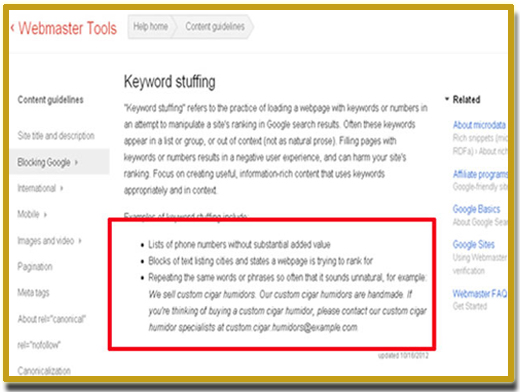



Keyword Stuffing And Irrelevant Keywords
Google officially defines keyword stuffing as the practice of loading webpages with numerous keywords in an attempt to manipulate a website's ranking on search engine results pages (SERPs) Google points out that such terms, which they also refer to as "irrelevant keywords," often appear in groups, lists, or out of context "Keyword stuffing" is a black hat SEO practice It aims at filling a webpage with keywords in an attempt to manipulate a site's ranking in Google search results Often these keywords appear repetitively as a list or group, or out of context (not as natural prose)Keyword stuffing is a search engine optimization (SEO) technique, considered webspam or spamdexing, in which keywords are loaded into a web page's meta tags, visible content, or backlink anchor text in an attempt to gain an unfair rank advantage in search enginesKeyword stuffing may lead to a website being temporarily or permanently banned or penalized on major search engines
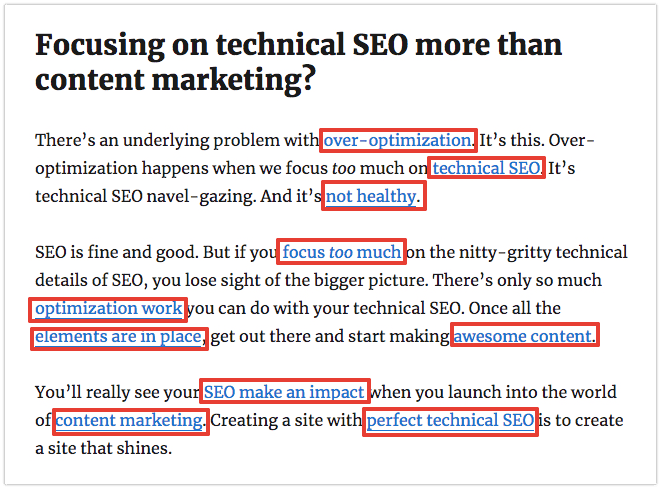



What Is Keyword Stuffing Why It Should Be Avoided
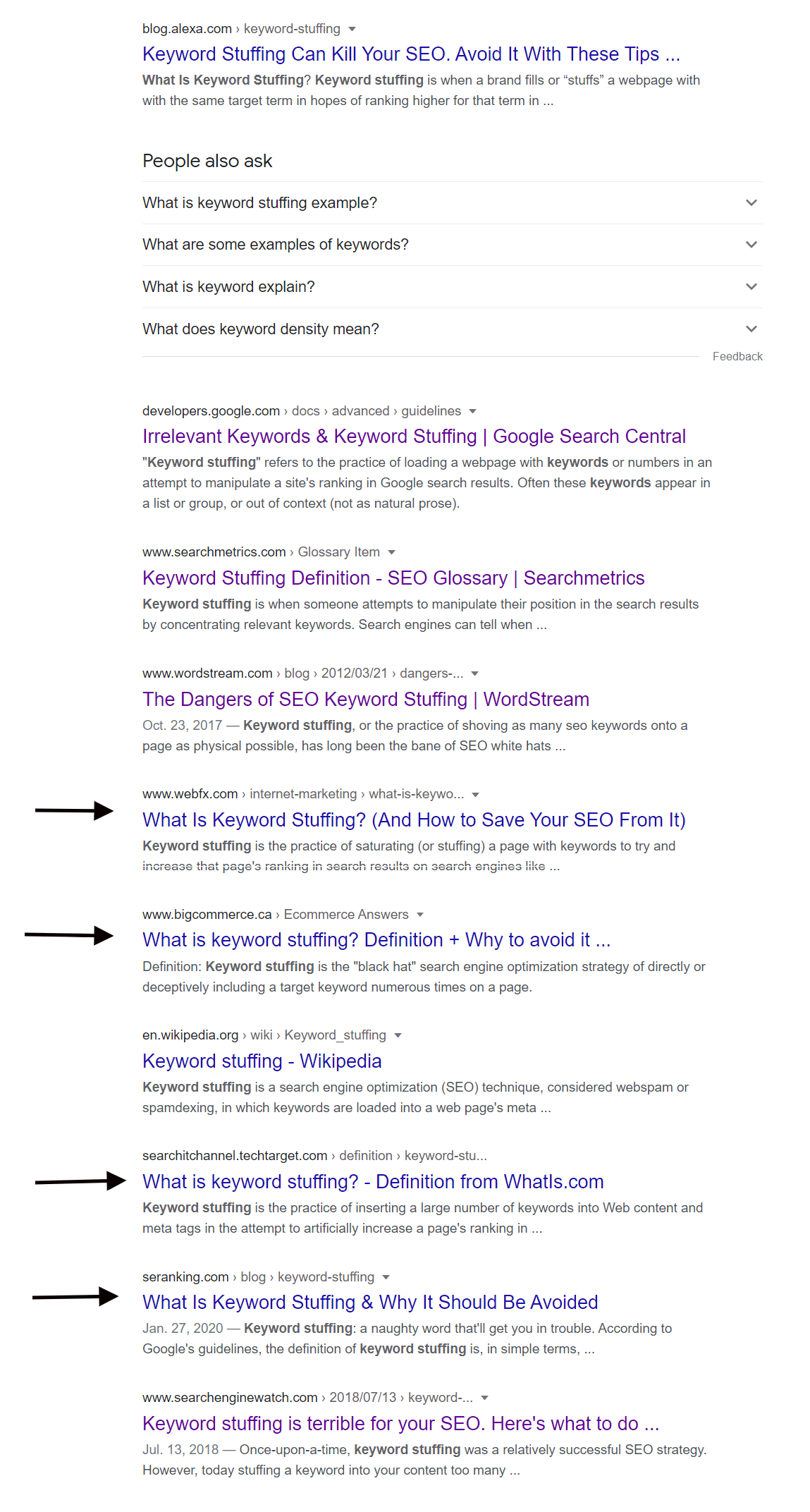



A Keyword Density Calculator Could Push You Into Bad Choices
Yes, circa 10 was about the time that keyword stuffing was a common practice, but in 10 years that has changed!




Outdated Seo Practices More Harm Than Good




4 Signs You Might Be Keyword Stuffing




Pin On Digital Marketing Definition




Explain Clients The Effects Of Using Keyword Stuffing As An Seo Tool
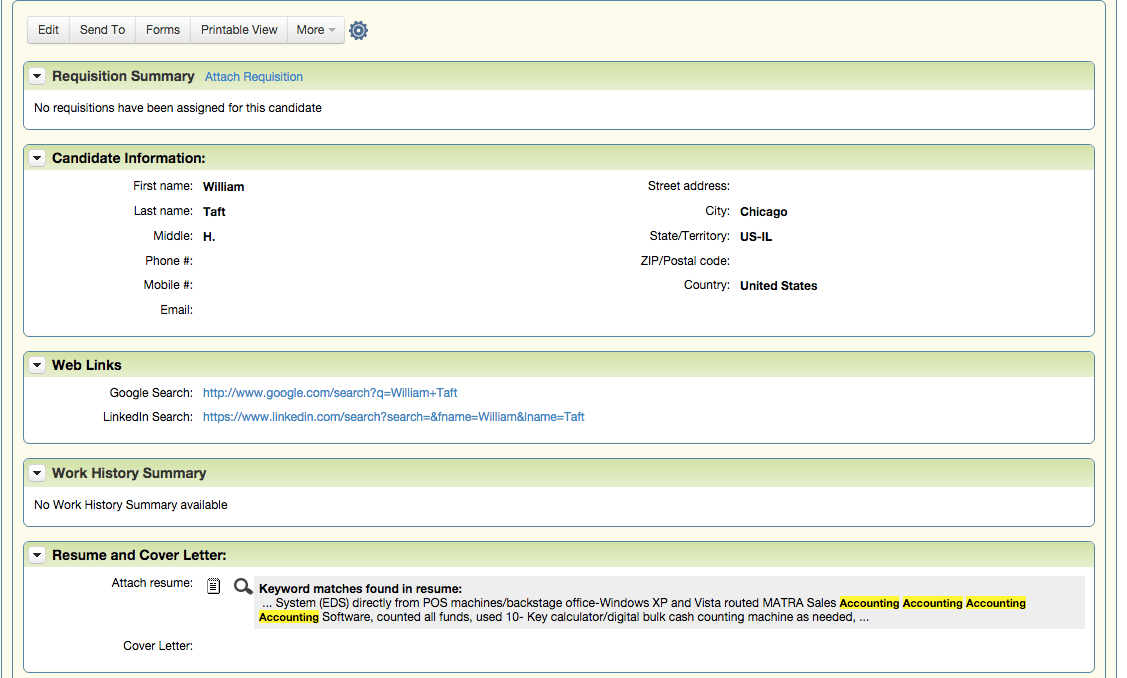



Are You Guilty Of Resume Keyword Stuffing Jobscan




5 Important Seo Keyword Terms That Affects Serps Ranking Opu Chowdhury




What Is Keywords Stuffing In Seo




Keyword Stuffing Definition How To Avoid It Seo Glossary




This Present Reality Effect Of Keyword Stuffing In Google My Business




Healthy Keyword Stuffing Technique To Improve Your Seo Marketing Agency Software Reportgarden




How Much Can Keyword Stuffing Actually Hurt Your Seo Seo Co




Keyword Stuffing Your Content Avoid It At All Costs
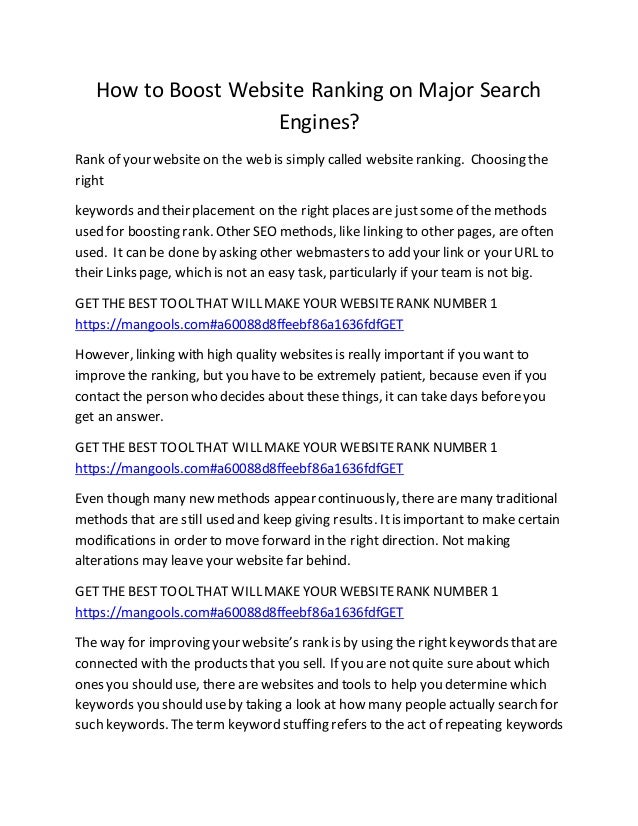



How To Boost Website Ranking On Major Search Engines
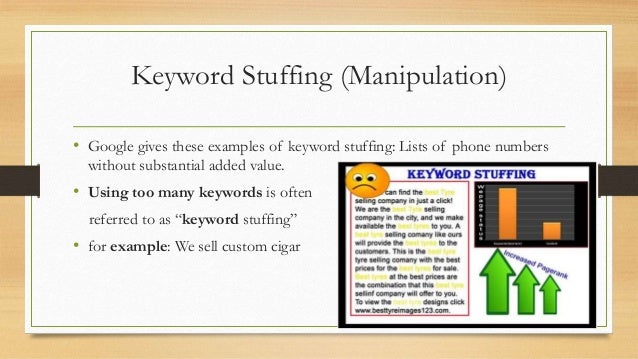



Keyword Planner




Why It S Essential To Avoid Keyword Stuffing In Modern Seo Ingenium Web
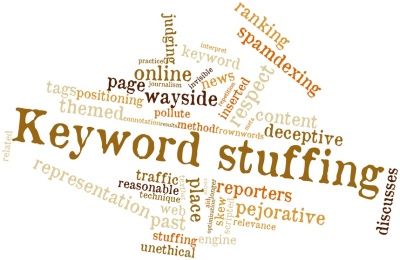



Keyword Stuffing Definition




Copywriting Intervention 5 Tips To Consider Before Keyword Stuffing Your Content




7 Bad Seo Tactics That Won T Live To See 22




The Dangers Of Seo Keyword Stuffing Wordstream




How To Optimize Keyword Stuffing Thomas Alwin Innovative Solutions




What Is Google Keyword Stuffing In Seo How To Avoid 21



What Is Keyword Stuffing Or Keyword Stuffing What Is It
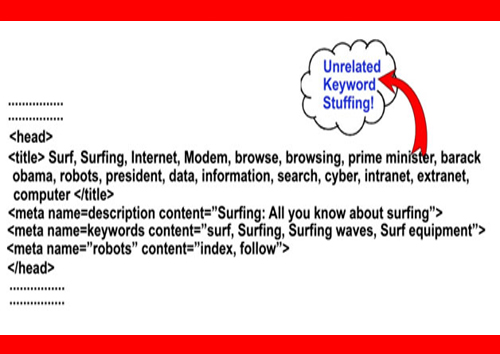



Meta Stacking And Title Spamming Discrete Keyword Stuffing




A Simple Guide To Bing Seo Adpros Marketing
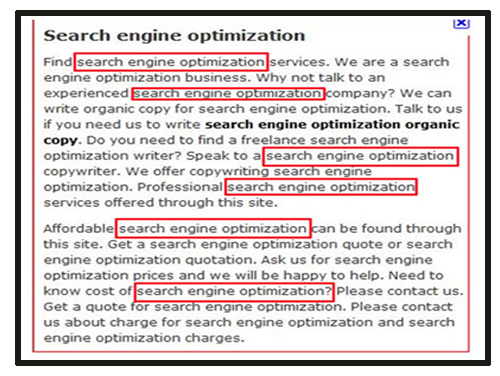



Keyword Stuffing And Irrelevant Keywords




The Industry That Makes The Supply Chain Work




Learn The Common Myths About Search Engine Marketing




Healthy Keyword Stuffing Technique To Improve Your Seo Marketing Agency Software Reportgarden



Seo 101 How To Spot Keyword Stuffing And Protect Your Ranking Page




Keyword Stuffing Doesn T Work Here S What Does Icsc



Here S Why You Should Avoid Keyword Stuffing If You Want To Master Squarespace Seo Charlotte O Hara



What Is Keywords Stuffing In Seo




5 Reasons Why Keyword Stuffing Is Bad For Your Website Fusion Seo




4 Signs You Might Be Keyword Stuffing




The Real World Impact Of Keyword Stuffing In Google My Business




Healthy Keyword Stuffing Technique To Improve Your Seo Marketing Agency Software Reportgarden




Introduction To Black Hat Seo Techniques Directive




Keyword Stuffing How To Avoid Seo Keyword Stuffing Digital Next
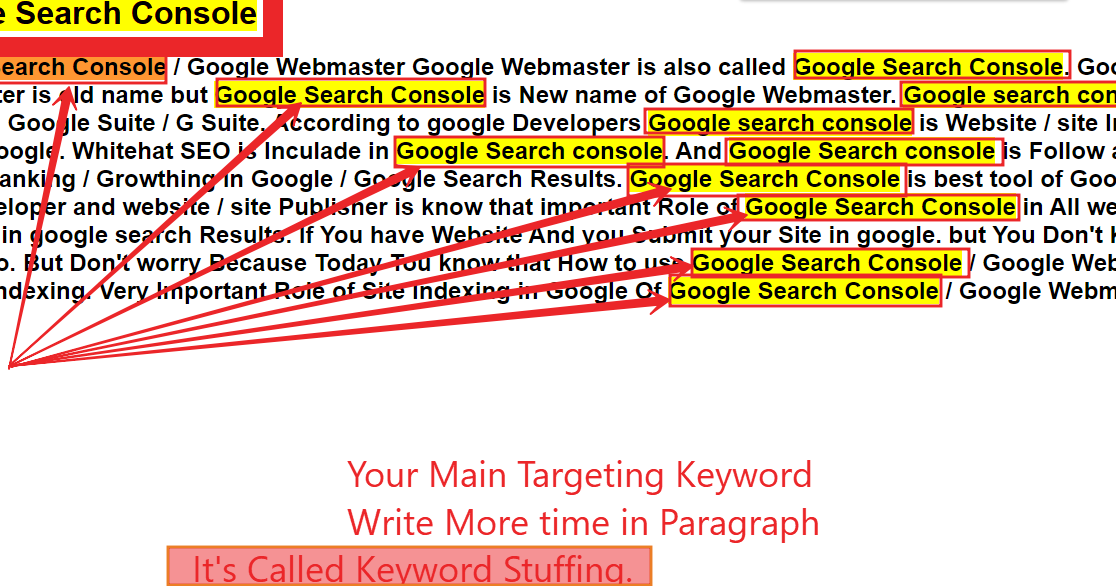



Keyword Stuffing Is Best Tool Of Blackhat Seo Hidden Keyword Stuffing Vivek Pannu
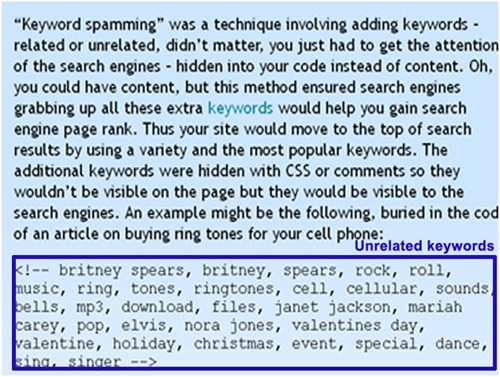



Unrelated Keywords Keyword Optimization Spamdexing Seo Company




Keyword Stuffing In Your Resume Just Don T Do It Getfive




Little Known Ways To Avoid Keyword Stuffing For Higher Rankings




Keyword Stuffing Example Entrepreneur Campfire




What Is Google Keyword Stuffing In Seo How To Avoid 21



What Is Keyword Stuffing Quora




Keyword Stuffing And Irrelevant Keywords




What Is Keyword Stuffing Has My Site Been Penalized For Keyword Stuffing Blue Corona




How Much Can Keyword Stuffing Actually Hurt Your Seo Seo Co




What Is Black Hat Seo And Why You Should Avoid It Sperling Interactive



What Is Keywords Stuffing In Seo




Keyword Stuffing Ryte Wiki The Digital Marketing Wiki




Keyword Stuffing Is A Common Local Seo Mistake Arclight Interactive




Keyword Stuffing Over Optimization And Its Google Penalties



1
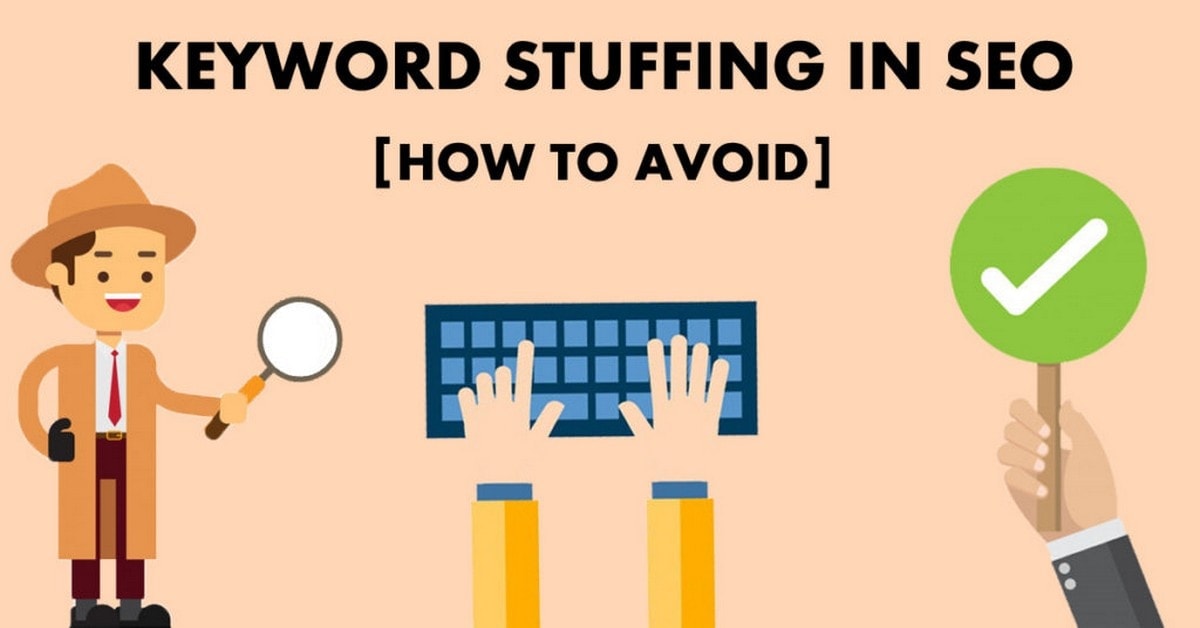



What Is Keyword Stuffing 7 Tools To Check Keyword Stuffing




What Is Keyword Stuffing And Why Should You Avoid It Ventura Copywriting




Keyword Stuffing 5 Ways To Avoid It Delante Blog




Keyword Stuffing Visitor Analytics
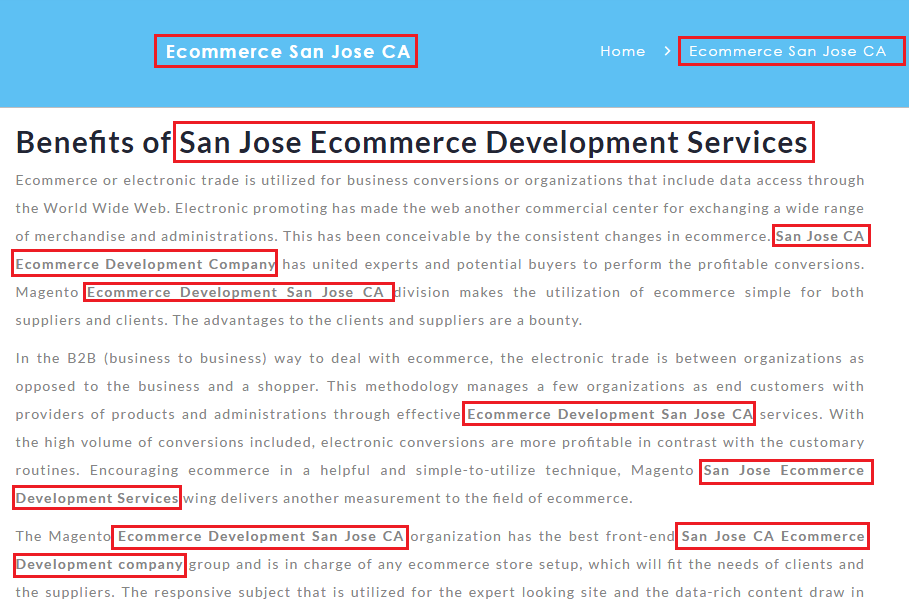



Does Black Hat Seo Still Work Hallam
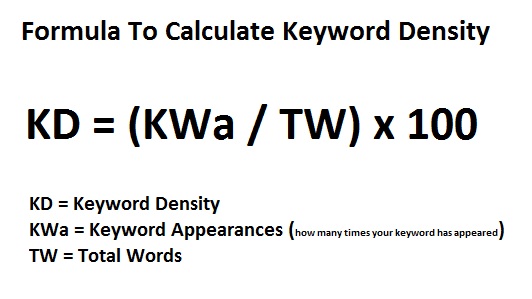



Keyword Stuffing What Is It And How Do You Avoid It




Keyword Stuffing Is Bad For Seo How To Rank Better Without It Writebetter




Keyword Stuffing What Is It And How Do You Avoid It




Keyword Stuffing Your Content Avoid It At All Costs



What Is Keyword Stuffing Or Keyword Stuffing What Is It




Keyword Stuffing Can Kill Your Seo Avoid It With These Tips Alexa Blog




Google May Ignore Keyword Stuffing If Content Has Value




Black Hat Seo Keyword Stuffing To Kill Your Site In Google




Copywriting Intervention 5 Tips To Consider Before Keyword Stuffing Your Content




What Is Keyword Stuffing And How To Avoid This 4 Seo Help




Keyword Stuffing Seo Invoicebus Blog



Yesss They Finally Added More Reasons For Reporting A Listing My Favorites Are Wrong Brand And Keyword Stuffing Long Overdue Mercari




What Is Black Hat Seo By Online Marketing Company Issuu




How Relevant Are Keywords For Seo Today The Sixjon Web Services Blog




Seo Glossary Digital Marketing Terms Atypic




How To Optimize Your Blog Content Zeidan


コメント
コメントを投稿